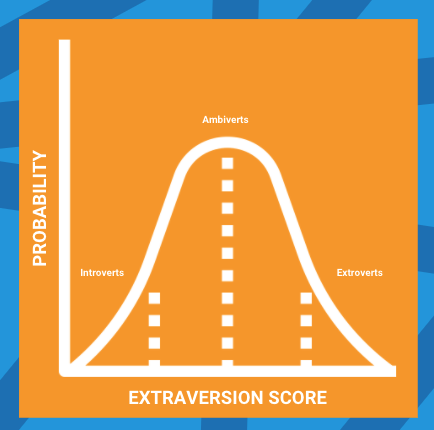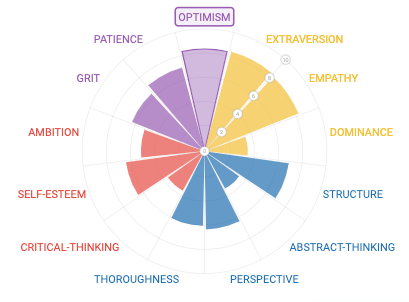
“What’s your type?” In the world of dating, this is the first thing people want to know. An easy answer, right? Intellectual, athletic, artistic — as humans, we typically begin with broad categories to describe ourselves and others. However, once you actually start describing what you’re looking for, you find yourself being more specific. “Likes to have philosophical conversations,” “enjoys outdoor activities in warm climates,” “likes to cook new recipes,” — in reality we are much more complex than those one word generalizations. The same philosophy should apply to soft skill assessments in the workplace. Instead of being bucketed into a generalized type, your traits are the best indicators of your unique strengths. Let’s break down the difference between types and traits.
Type Theory
Type theory is based around the idea that personality is a combination of qualities or dimensions that can be grouped together into a certain number of categories (or types). All people fall within one type based on which group they share the most specific attributes with. Think Myers Briggs or Enneagram, where you are one of 16 combinations of letters (ie, ESFJ) or one of 9 number types.
Yes, type theory is helpful for an organization to get a generalized idea of a person, but does that mean that a company really understands who you are, and more importantly, if you will be successful in the role? For example, if an assessment identifies you as an introvert, the assumption may be that that you are quiet, would prefer to work alone, and you need time to reflect on your thoughts before speaking. It’s a generalization, and while some of those assumptions may be true, chances are not all describe you.
The concern with using types in personality assessments is that humans are much more complex. Instead of Introversion and Extroversion being a dichotomy, it is better understood as a spectrum. That is where trait theory comes into play.
Trait theory
Rather than using broad categories to define human behaviors, trait theory focuses on the individual differences between people and eliminates the ‘boxes’ that type theory tries to fit people into. Going back to the introverted/extroverted example: trait theorists will say that a large majority of people actually fall somewhere in the middle and show qualities of both introverts and extroverts.

Research over the years has shown that there is enough of a variation in human personality for most of the scientific community to favor trait theory. Additionally, the most widely accepted theory of personality, the Big Five Theory, is part of trait theory. The Big Five is a theory in which five broad categories are the building blocks of personality, which most people have heard of using the acronym OCEAN: Openness, Conscientiousness, Extroversion, Agreeableness, and Neuroticism. Everyone falls on a spectrum in each of these categories, and sometimes these are broken down into smaller and more specific scales. This personality theory is the backbone of many of the personality assessments that are used today, like MyPrint® or the Big Five Inventory.
You are Unique!

Now that you understand the differences between Types and Traits, which theory do you prefer when it comes to showcasing your soft skills? The one that generalizes you in a standard box, or the one that lets you expand outside those walls to showcase your unique qualities? If you want to discover more about your soft skill strengths, take a free MyPrint® assessment today! Once you have completed the questionnaire, you can begin using your traits to be more productive, improve your interpersonal skills, and set your personal and professional goals specific to your individual attributes. Additionally, you can see how your personality radar and motivation scales show the special qualities that make you YOU!
Looking for additional resources and support? Email Talentobe at customer@talentobe.com to learn more about our assessment and services!